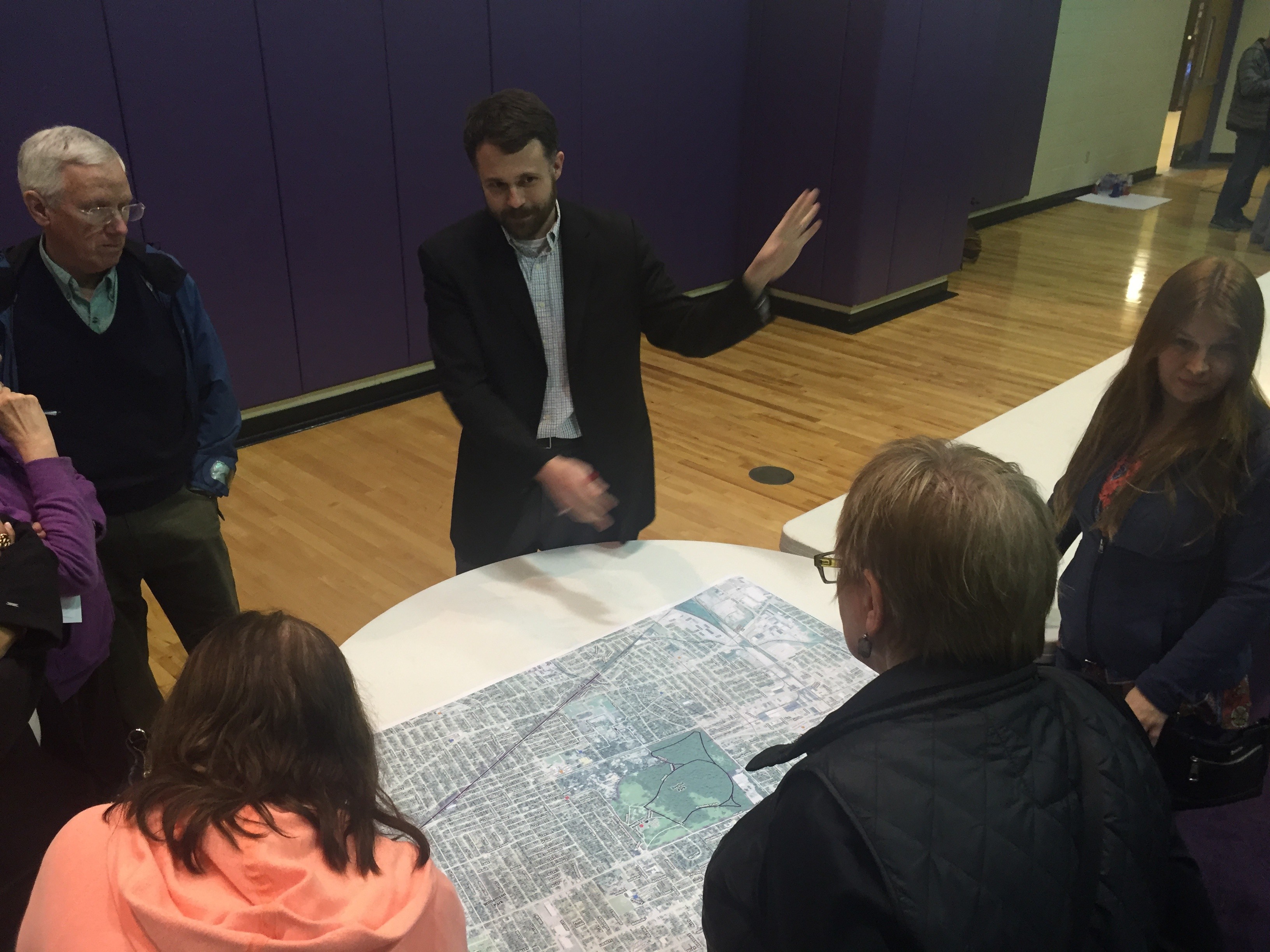 Toby Sells
Toby Sells
Nearly 200 people gathered at First Baptist Church on Broad Avenue to hear proposals from consultant to help alleviate parking and traffic issues around Overton Park.
A smartphone app. Bike lanes. New bus routes. Pedestrian paths. A shuttle. And, yes, perhaps a parking garage for the Memphis Zoo.
These were just some of the proposals to help alleviate persistent traffic and parking problems in and around Overton Park that were unveiled Thursday evening to a large crowd at First Baptist Church Broad Avenue.
Last month, the Overton Park Conservancy picked Looney Ricks Kiss (LRK), Alta Planning + Design, and Kimley-Horn and Associates to study problems at the park and to come up with possible solutions. Team leaders said their ideas constitute a menu of choices to be picked from in the future to ease traffic and parking woes.
Steve Auterman, a senior associate at LRK, kicked off the hour-long presentation by acknowledging that the main issue (the one that likely drew the most people to the meeting) was parking on the Greensward.
“We feel confident that we can diminish or eliminate this conflict,” Auterman said. “There is not one answer. It will take multiple solutions and it’ll take time. But there are plenty of opportunities to address the situation to everyone’s satisfaction.”
Auterman and his team also laid the blame for the tense parking situation in the park at the front door of Memphis City Hall. A slide in his presentation said the “city is responsible for parking at Overton Park, not the Overton Park Conservancy nor the Memphis Zoo.” The city has “deferred an acceptable solution” on parking there for more than two decades, read the slide. Through this, the city has created the parking problems and the tensions that exists at Overton Park today, according to the presentation.
Here are some of the ideas from the team:
• Some of the parking solutions could be resolved through better communications with park patrons. A smartphone app could be developed to tell patrons where to park and even reserve parking within the park, much like the one that exists for FedEx Forum visitors now.
• Also, park attractions could have different pricing on different days to incentivize patrons to visit attractions on off-peak days.
• Bike lanes could better connect patrons to the park and lead them through it, thus reducing the amount of cars needed to be parked.
• Pedestrian access could be increased, reducing the amount of cars.
• Access points for mass transit could be improved to encourage patrons to take a bus to the park.
• A dedicated shuttle could run from the Overton Square parking garage to the park.
• Surface lots could be added in strategic places to add more spaces.
• Parking on the zoo’s main lot could be reconfigured to get additional parking spaces.
• Reinforce the Greensward with Grasscrete, a concrete structure that allows grass to grow through it.
This suggestion brought a chorus of complaint from the crowd, one of the only times the meeting ever became unruly.
• Build a parking garage somewhere on the existing zoo property.
This suggestion brought a smattering of applause from the crow. Still, Auterman warned the crowd that these structures are expensive and may not be palatable to neighbors around the zoo. Also, he said, the garage – if it were built – will be nice.
“If we do a parking a garage, it has to be a great experience,” Auterman said, pointing to the new garage at Memphis International Airport as an example. “If we’re going to do something, let’s do it right. This is a landscape that deserves it. It should be of a high standard befitting a civic treasure.”
The OPC will send out a new survey with some of these options to its members to begin the process of deciding what solution could emerge as a real, viable option.